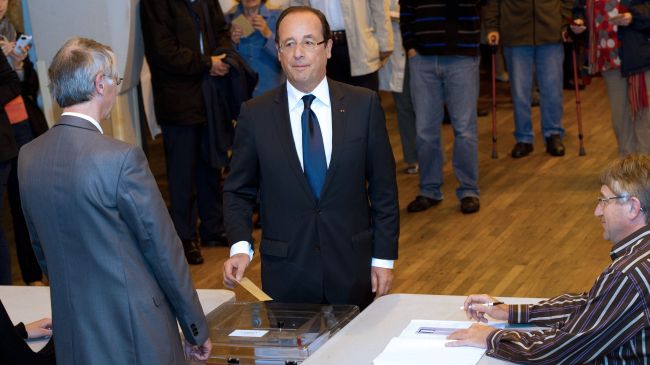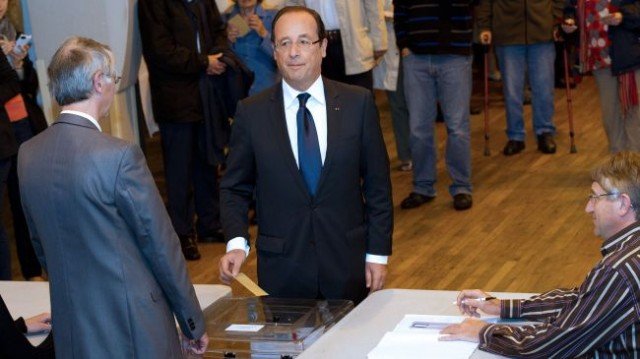
France is voting in a second round of parliamentary elections seen as crucial for President Francois Hollande’s reform agenda.
Socialist Francois Hollande, who was elected last month, is seeking a solid left-wing majority in the lower house.
He has promised to hire more public workers and to refocus EU fiscal efforts from austerity to “growth”.
Socialists and their left-wing allies won 46% in last Sunday’s first round, against 34% for the centre-right UMP.
Nationwide, the turnout was a modest 57%. France’s 46 million eligible voters are picking representatives for 577 seats in the National Assembly.
After the first round, 36 seats out of 577 were declared in constituencies where the winner got more than 50% of the vote. Socialists and their allies won 25 of those seats.

The French Senate is already under the control of the Socialists and their allies following elections in 2011.
The Socialist Party has concluded electoral pacts with the smaller Europe Ecology/The Greens (EELV) as well as the Radical Left party – with marginal candidates withdrawing from the second round in order not to split the left-wing vote in individual constituencies.
The vote is also seen as a key test for the anti-immigration National Front (FN), which took 13.6% in the first round.
The FN – which has no nationally elected representative – is hoping to take a number of seats, notably for its leader Marine Le Pen in the northern town of Henin Beaumont.
Another closely watched race will be in La Rochelle in the west. Official Socialist candidate Segolene Royal – who is also Francois Hollande’s former partner – is standing against a dissident left-winger, Olivier Falorni, who defied the national leadership and maintained his candidacy.
In a well-publicized twist in the past week, Francois Hollande’s current partner, Valerie Trierweiler, expressed her support for Olivier Falorni in a tweet.
On the right, the UMP of former President Nicolas Sarkozy has concluded an electoral agreement with its centrist Radical Party and New Centre allies.
The start of Francois Hollande’s term has been dominated by the eurozone crisis. In his month since taking office, he has taken part in a series of summits urging his EU partners to engage in stimulus spending and to consider eurobonds.
His government is due to present a revised budget plan to parliament next month.